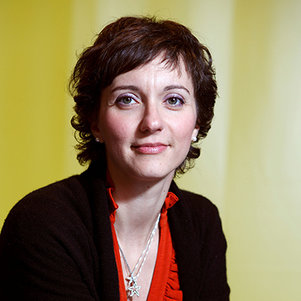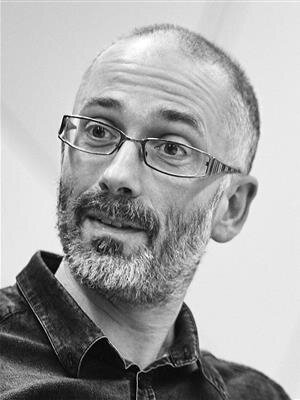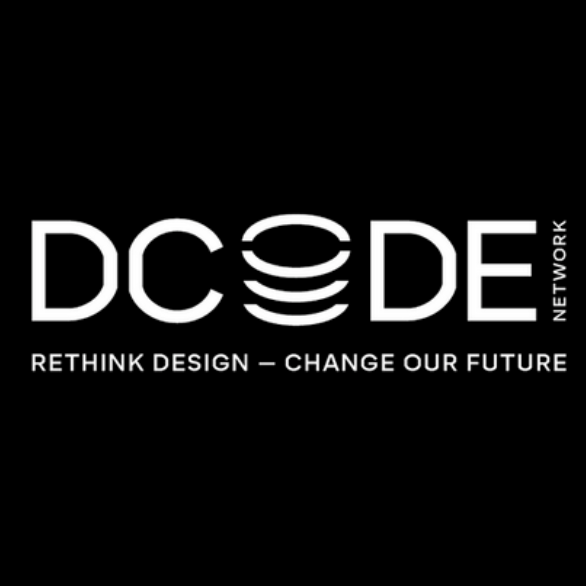The expanding design universe
AI is turning static products into dynamic ones that change while we use them. This requires new design methodologies. The European network and PhD programme DCODE, coordinated from the TU Delft Faculty of Industrial Design Engineering, is all about rethinking the future of design in a world full of AI.
Of course everybody knows what a car is, right? Well, the answer is becoming less obvious than in the past. A car in the digital age differs fundamentally from a car in the analogue or mechanical age. In the mechanical age the car was an unchangeable product designed for one driver and a few passengers. In the digital age the car is becoming more and more connected, to a navigation service, to a computer vision system, to other road users and to road infrastructure. The digital transformation in general, and artificial intelligence (AI) in particular, are turning a metal box on four wheels into a connected high-tech device that even evolves over time.
Elisa Giaccardi, professor of post-industrial design at the TU Delft Faculty of Industrial Design Engineering gives the connected car as an example of how AI is forcing designers to think in conceptually new ways.
The biggest change that AI brings to design is that it enables systems to learn and evolve in and through use. What the product is, keeps shifting. Suddenly a car can even become part of an insurance service. For us as designers it means that we need to design for new, unfolding relations, rather than for a fixed product.
Prof. dr. Elisa Giaccardi
How design should change under the influence of AI merging with products and services is a big open question. To help solve this question Giaccardi coordinates the European network and PhD programme DCODE. Within DCODE fifteen PhD students in eight European cities work from different angles and within their own projects on the same overarching design challenge (for more info on DCODE, see Box ). "We are trying to develop new design methodologies and a new vocabulary that will allow designers to communicate with each other about the new design challenges", says Giaccardi.
An example of a new concept in the design vocabulary is ‘multi-intentionality’. "Take a platform like Facebook", explains Giaccardi. "Facebook serves multiple purposes and multiple interests at the same time, depending on who you are and how you interact with the platform. It is directed towards different purposes, not all transparent, and that is why we call it ‘multi-intentional’. The universe of design expands because networked products and services are becoming multi-intentional through the incorporation of AI."
Grace Turtle is one of the PhD candidates working within the DCODE programme at TU Delft. She started in 2021 on a project that she entitled ‘Queering AI’. Turtle has both Colombian and Australian roots, considers herself queer, and takes inspiration from her multiple identities without reducing herself to any fixed one. Turtle: "For me queerness as applied to design offers a way to explore the in between. The in between is mutable, resists fixed classification and normalization, the queer wonders, it desires to be wild. Queering AI makes us rethink how AI is encoded and how those encodings come to shape particular realities."
Turtle illustrates her thinking with the way Google Maps functions: "Google Maps tells you the best route from A to B. It interprets the concept of ‘best’ as the fastest route. Although the application gives you various routes, the main measure is the time it takes to get from A to B. But if you apply the concept of queering AI, there should be different measures that help you to shape your journey."
Maybe you don’t care so much about the time and you want to travel down the route less traveled, may be you want to pass a certain landmark, or maybe you want some variation every time you travel from A to B.
Before Turtle started her PhD research she had worked in industry for some years. She was exploring the future of cities. Turtle hopes that DCODE will contribute to avoiding one-dimensional outcomes like Google Maps gives. In her own work she wants to expand the way we imagine and enact the future of cities. Turtle: "By the end of my PhD project, amongst other things, I hope to have created a queer intelligent digital twin that opens up new possibilities for how we prototype, test and manage complex systems like the city."
"The models and simulations produced through digital twins can be compelling collective decision-making tools", Turtle continues. "Whereas traditional design processes lead to static decision making or fixed outcomes, simulations allow you to explore ‘what if’ questions. For example, to see how a city might change over time and in great detail. I want to explore what happens when we rethink data, the model, and the simulation through the lens of queerness."
An important part of DCODE are the so-called prototeams. "A prototeam is a team of PhD researchers from various backgrounds who work together in real-world contexts", explains professor Elisa Giaccardi. "Prototeams learn by doing and rehearse future job profiles."
An example is the collaboration of one of the prototeams with the Amsterdam Institute for Advanced Metropolitan Solutions (AMS). Giaccardi: "This particular prototeam investigates how surveillance systems can be made more open and transparent. It also explores how to configure a team so that it allows you to look at all the different levels of interaction that need to be integrated, from algorithms to the commercial service and broader issues of political governance."
PhD candidate Grace Turtle is also part of a prototeam. "For me the prototeam is a really nice way to find common interests with other PhD students", she tells. "Naturally more connections emerged between individual projects." She feels very much connected to the DCODE network of researchers: "We have summer and winter schools and informally we communicate a lot via Slack. DCODE is like an adaptive emergent system in which the researchers cluster around common topics. I often dance between being an employee of TU Delft and a member of the DCODE network."
Associate professor in human-algorithm interaction at TU Delft Dave Murray-Rust is trying to integrate the philosophy of DCODE into the master education of the Faculty of Industrial Design Engineering, apart from doing research himself. "For me DCODE is all about educating a new generation of students", he says. "I hope that they change the world of design for a more human, more joyful and more critical approach of designing technology."
On 22 June, a DCODE symposium took place at TU Delft. It included an Interactive Technology Design exhibition which featured two DCODE-prototypes. One was a smart health mirror that allows people to experience the potential future of health care in their own smart home. It was a two-person experience. One person, the consumer, stands in front of a mirror that gives information about the person’s health. The consumer has a choice in how much data to share with the smart mirror and how closely to follow the health advice.
A second person stands behind the mirror and has control over the AI-system of the smart mirror. The AI-system provides information about the first person’s health status and possible treatments or drugs. This second person also has choices, for example choices that benefit a certain drug company but not necessarily the consumer. Together they can explore the different outcomes, based on different settings of the underlying AI-system.
"This prototype is a great way to help people understanding how they relate to the algorithmic society", says Murray-Rust. "Do we assume that the smart mirror just advises us on the right drugs to make our lives better? Or do we acknowledge that all the interactions we have are seen by pharmaceutical companies with an agenda that is not necessarily the same as ours?"
Murray-Rust is also preparing a new course for master students, called ‘Interdisciplinary AI research methods’, inspired by DCODE. The course will start in February 2023 and will address questions such as: Can algorithmic impact assessment be a design research method to understand AI in practice? How do we use role playing to think about the systems that we might want to design? Can we look at software and source code, and use this to tell stories about design and the evolution of systems?
When it comes to the interest of design students in AI he says: "A third of the students are very interested in AI, a third are interested but afraid, they don’t know what it is and how to engage, and one third does not really want to have much to do with it."
Murray-Rust himself started his academic career as a computer scientist, but over the years felt that the most interesting questions were coming from the interaction between computers, technology and people: "The way in which people relate to technology is becoming more and more fundamental in our society. With DCODE we contribute to shaping that future."
DCODE in brief
DCODE is a four million euro European network and PhD programme funded by the EU-programme Horizon 2020. It runs for three years, from 2021-2023. The mission of DCODE is to train researchers and designers to guide society’s digital transformation towards inclusive, sustainable futures. The research component of this mission is to explore how the use of artificial intelligence in digital products and services is changing design vocabulary and methodologies and with that future design practices.
DCODE brings together 40 researchers (including 15 PhD students) from 20 countries cutting across design, engineering, social sciences, and humanities. The 15 PhD candidates work in 8 European cities: Delft, Umea, Edinburgh, Eindhoven, Aarhus, Copenhagen, Riga and Amsterdam. In addition to this, DCODE has five graduation labs, built around the five big challenges identified by the consortium, each with a particular focus: the human-algorithms lab, the entangled interactions lab, the multi-sided value lab, the digital sovereignty lab, and the future design practices lab. DCODE also collaborates within various public-public and public-private partnerships.
An important part of DCODE are its summer and winter schools. In June 2022 TU Delft organised a summer school, with a special DCODE symposium on the 22 of June 2022.

Elisa Giaccardi
- +31 (0)15 278 9223
- e.giaccardi@tudelft.nl
-
Room C-3-150

Dave Murray-Rust
- D.S.Murray-Rust@tudelft.nl
- Personal Website
-
32.C-3-250
Present on: Mon-Tue-Wed-Thu-Fri

![[Translate to English:] Woman testing the driving simulator in front of a big screen with a real life street view displayed on it.](https://filelist.tudelft.nl/user_upload/DS-DCODE-car1-l.png)
![[Translate to English:] Two photos, one of a person driving with an AI powered geat stick tablet, and a photo of a sketch model on paper of how the system works.](https://filelist.tudelft.nl/user_upload/DS-DCODE-car2.png)

![[Translate to English:] Magic mirror installation with people experimenting with it.](https://filelist.tudelft.nl/user_upload/DS-magicmirror-1.png)
![[Translate to English:] The magic mirror in action.](https://filelist.tudelft.nl/user_upload/DS-magicmirror-2.png)
![[Translate to English:] DCODE professors engaging with participants](https://filelist.tudelft.nl/user_upload/DS-DOCDE-professors.png)

